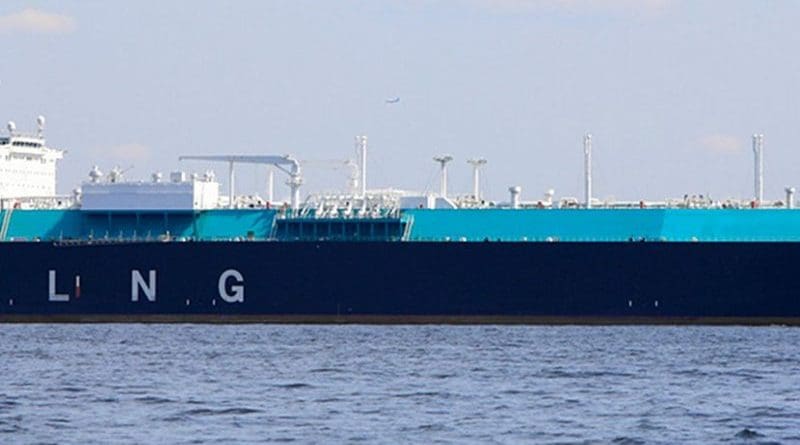European Energy Regulators In Discrete Washington Visit For ‘Crisis’ Talks
By EurActiv
By Paul Messad
European energy regulators are currently in Washington to discuss about energy crisis and to lay the groundwork for negotiating lower prices for gas imported from the US, according to information from EURACTIV.
Since Europe is no longer supplied with Russian gas, wholesale prices on gas market have soared to unprecedented levels. This is a goldmine for EU suppliers such as Norway and the US, which have increased their flows to Europe on the back of continued strong demand.
Given this situation, some Member States, including Germany and Poland, called last week for frank discussions with these suppliers.
It seems that they have been heard, because according to our information, ten energy regulators from EU countries have been in Washington since Wednesday (12 October) to negotiate.
Representatives of the French and German regulators – the Commission de régulation de l’énergie (CRE) and the Bundesnetzagentur (BNetzA) – are reportedly present, according to our sources.
Emmanuelle Wargon, the head of France’s CRE, later confirmed that she was in Washington as part of a visit with the Agency for the Cooperation of Energy Regulators (ACER) and the Council of European Energy Regulators (CEER).
Western solidarity?
For European regulators, the aim is first of all to remind the American authorities that the West must show solidarity in the ongoing energy crisis.
However, ACER insisted that they were not in Washington to “negotiate lower prices for shale imported from the United States”.
“Rather, ACER and CEER are meeting with their US counterparts, the Federal Energy Regulatory Commission (FERC) and National Association of Regulatory Utility Commissioners (NARUC), as part of a regular EU-US regulatory dialogue,” said Una Shortall, spokesperson for ACER.
Topping the agenda at the Washington talks is the “Energy Crisis & Mitigation Measures”, followed by more long-term topics, such as grid resilience, clean energy and decarbonisation, electrification and new technologies, or cybersecurity, ACER told EURACTIV.
According to our interlocutors, the Americans, who are themselves in the grip of record inflation, are not fully aware of the extent of the economic and energy crisis facing 440 million Europeans.
The visit will focus on negotiating down the price of US shale gas, which has reached “astronomical” prices, according to German Economy and Climate Minister Robert Habeck.
At the close of business on Wednesday (12 October), the European-wide benchmark (TTF) recorded a price of €160/MWh compared to €15/MWh in February 2021.
In other words, the discussions on the other side of the Atlantic could have a direct impact on the purchasing power of Europeans.
European solidarity?
European regulators are travelling to Washington with some fresh arguments, as the European Commission is expected to unveil a series of proposals next Tuesday (18 October) to lower energy prices in Europe.
Among them is a European mechanism for joint gas purchases, a measure particularly supported by Germany and the Netherlands. This buying platform would allow EU Member States to weigh more heavily in negotiations with US suppliers by pooling their purchasing power.
The Commission is also preparing a price cap on imported gas, a measure aimed at “demonstrat(ing) that the EU is not ready to pay whatever price for gas,” said the President of the EU executive, Ursula von der Leyen, in a letter to European leaders earlier this month.
The difficulty, however, lies in finding the right price to satisfy consumers, without scaring off suppliers.
After reluctantly backing the price cap idea – even if temporary – the European Commission is therefore also pursuing its most favoured solution: negotiating directly with gas suppliers.
In her letter to EU leaders, von der Leyen indeed recommended to “intensify negotiations with reliable suppliers” such as Norway and the United States.
The EU regulators’ visit to Washington is there to pave the way for such an agreement.
Meanwhile, the finance ministers from the 19 eurozone countries met on Friday morning (14 October) in Brussels for talks in the margins of the IMF and World Bank meetings.
The discussion included US Treasury Secretary Janet Yellen and focus on the economic outlook following Russia’s war in Ukraine, the energy crisis and the high levels of inflation experienced on both sides of the Atlantic, according to a statement.
According to the press release, the aim was to discuss transatlantic economic prospects and risks, “in light of the war [and] the energy crisis”.
[Davide Basso edited and contributed to this article]

